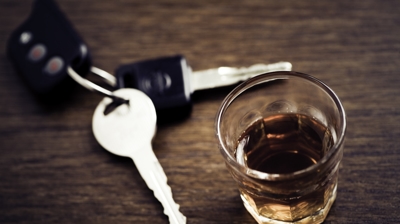
Defending a DUI Arrest in Colorado
Our Denver DUI Attorneys are Ready to Help
Driving under the influence of alcohol, or more commonly known as DUI or "drunk driving,” is one of the most common offenses in our country and our courtrooms. Driving under the influence is also one of the most difficult charges to defend. DUI or "drunk driving" is one of the only crimes in America that is not afforded the constitutional safeguards we have all come to know and appreciate.
The evidentiary, scientific and procedural processes of defending DUIs has grown so complex over time as a result of continuing to lower the "legal limit" and placing harsher penalties on people charged with and convicted of DUI.
If you’ve been charged with DUI, take action today. Call us at (303) 747-4247 or contact us online to schedule a free consultation with a trusted Denver DUI defense lawyer and start building your defense strategy now.
Recent Changes to Colorado DUI Laws
The most noticeable change to our DUI laws was the inclusion of the per se law. This law fundamentally states that it does not matter whether or not you were impaired or under the influence, but rather if your chemical test was above our magic number. In Colorado, this magic number is .05 for DWAI and .08 for DUI. This makes the prosecution's job much easier and the defense's much more difficult. The prosecution now relies more heavily upon the "science" of the chemical test and not whether or not you were truly intoxicated.
It is important to note that Colorado’s DWAI limit of .05 is a rebuttable presumption. This means that if you submitted to a chemical test of your blood or breath and your BAC was .05 to .079, there is a presumption that you are impaired to the slightest degree. You have the right to rebut that presumption, but the presumption is that you are guilty, not that you are innocent.
As political and public pressure to arrest and convict more DUIs increases so does the monetary gain for the State and third party businesses who supply the State with the tools and machines to test and convict suspected drunk drivers. Thus, our need for more complex and "accurate" testing devices increases. As we continue to make the methods of testing more complex, the level or error continues to increase as well.
Defending Against DUI Charges
1. Understanding Express Consent & Chemical Tests
In Colorado, you have expressly consented to submit to a chemical test by driving on our public roadways. You have a choice of a blood or a breath test. If you choose breath, you will be required to blow into a device known as the Intoxilyzer 9000. A well-trained Denver DUI defense lawyer will be trained in the operation and functionality of this machine and know how to attack the validity of its results.
If you submit to a blood test, you have the right to have a second sample preserved for you to have re-tested at an independent laboratory of your choice. There are only two certified labs in Colorado from which to choose: Rocky Mountain Instrumental Laboratories, Inc. and Chematox Laboratory, Inc. Most of the State’s tests are now performed by Chematox, so all requests for independent analysis should go to Rocky Mountain Instrumental Laboratories, Inc.
A knowledgeable DUI attorney in Colorado understands the challenges in these cases and will carefully investigate and exploit issues with every test result. Because of the complexity and difficulty in preparing successful defenses, you must select your defense attorney carefully and ensure that their level of knowledge is superior to that of other defense attorneys. Do not hire based on price alone. Remember, you often get what you pay for when it comes to criminal defense attorneys. How much time do you really think a cheap, inexperienced DUI lawyer will actually spend on your case?
2. Challenging Field Sobriety Tests
Chemical analysis is not the only aspect that your DUI defense lawyer should attack. Along with chemical analysis, other evidentiary changes have evolved in recent years. One of these areas is field sobriety tests. Your Colorado DUI defense attorney should be trained in standardized field sobriety tests and must understand the validity of each test and how these tests can be compromised by instructor error.
Attorneys at The Orr Law Firm will attack and identify errors in the following areas:
- Reasonable Suspicion for Contact - Why did the officer stop or contact you?
- Probable Cause for Arrest - What are the officer's observations? What are your indicia of impairment? What basis does the officer have to invoke Express Consent and require you to submit to a chemical test?
- The Chemical Test - Was the test made voluntary to you? Was the test completed within substantial compliance of the CDPHE rules and regulations? Did you refuse the test, and if so, why?
Within each of these phases will be dozens of different evidentiary items that need to be evaluated and exploited. An experienced and knowledgeable DUI defense attorney will attack each phase of your arrest to prepare a solid and reputable defense.
Reasonable Suspicion for Contact
Below is a list of the most common reasons for officers to stop or contact individuals who they subsequently arrest for DUI.
This list is based upon several thousand DUI cases defended by attorneys at The Orr Law Firm:
- Accident
- Weaving
- Speeding
- Careless Driving
- REDDI Report (Report Every Drunk Driver Immediately)
- Wide Turn
- Failure to Signal
- Defective Vehicle
- Wrong Way on a One-Way Street
- No Headlights
- Disobeying a Traffic Signal/Device
- DUI Checkpoint
- Illegal Turn
- Hit & Run
- Expired/Fraudulent Tags
- Following Too Closely
- Welfare Check
- Almost Striking a Vehicle or Object
- Reckless Driving
- Illegal U-Turn
Probable Cause for Arrest
After the officer has made initial contact, he/she must establish probable cause for arrest and require you to submit to a chemical test.
The officer will look at and assess the following:
- The Stop
- Did you immediately recognize the officer attempting to stop you and how quickly, smoothly and safely did you pull over or come to a stop?
- Did you use your turn signal to pull over?
- Did you leave your turn signal on upon pulling over?
- Did you forget to put your vehicle in park and accidentally roll forward or backward?
- Did you light a cigarette immediately or roll all your windows down to allow the smell of alcohol to escape?
- Initial Observation
- Did you have bloodshot, watery, glassy or pink eyes?
- Did you have a strong, moderate or slight odor of alcohol emitting from your person or breath?
- Did you have thick-tongued, slurred, or mumbling speech?
- Did you admit to consuming or drinking alcohol?
- How was your finger dexterity? Were you able to remove your license from your wallet without struggling?
- Were you aware of your surroundings or disoriented?
- Were you able to identify documents such as license, registration, proof of insurance, etc.?
- Were you able to multi-task? Can you retrieve your insurance and registration documents while answering questions?
- Pre-Arrest Screening
- The officer will now request you perform voluntary roadside maneuvers
- HGN- Horizontal Gaze Nystagmus- This test will look for the involuntary jerking of the eyes. The officer will observe your eyes to determines if they pursue smoothly, have nystagmus prior to 45 degrees and if you have nystagmus at maximum deviation.
- WAT- Walk and Turn- The officer will ask you to take a series of heel to toe steps on an actual or imaginary line and to conduct a turn as demonstrated and instructed and then to come back walking heel to toe.
- OLS- One Legged Stand- The officer will ask you to stand on one leg and count out loud to 30 seconds or until he tells you to stop.
- The officer may ask you to perform other roadside maneuvers such as the following:
- Modified Rhomberg
- ABCs
- Counting
- Finger to Nose
- PBT (Preliminary Breath Test)
- The officer will use this evidence against you in support of an arrest. At this point the officer will believe he/she has gathered enough evidence to support an arrest and establish probable cause to request you submit to a chemical test.
- The officer will now request you perform voluntary roadside maneuvers
Chemical Test
The officer has now placed you under arrest and is supposed to advise you of Colorado Express Consent Law. Colorado's Express Consent Law requires any driver to consent to a chemical test if a police officer has reasonable suspicion to believe the person is driving under the influence or their ability to operate a motor vehicle is impaired to the slightest degree because of alcohol, drugs or both. At this point the officer should advise you that you have the right to a blood or breath test. If you choose to refuse a test, you may lose your license for one year.
Upon choosing a test, the officer will take you to the appropriate facility to conduct a breath test on the Intoxilyzer 9000 or to have a blood draw completed for analysis. Each of these tests has very strict guidelines on proper procedure, timelines, and protocol. If these tests are not conducted within substantial compliance of the Colorado Department of Health & Environment rules and regulations, the validity of your test results may be compromised.
A knowledgeable Denver DUI attorney will look into all of these stages to find any and all errors and prepare your defense accordingly.
2. Arguing Medical Conditions and Prescription Medications
In some cases, medical conditions or prescription medications may be responsible for signs of impairment that were misinterpreted as intoxication. Certain medications, including painkillers, antihistamines, and anti-anxiety medications, can cause drowsiness, dizziness, or impaired coordination. If you were taking medication prescribed by a doctor and can provide documentation of this, it may serve as a valid defense against DUI charges.
Likewise, medical conditions such as low blood sugar, asthma, or neurological disorders may cause symptoms that resemble impairment, such as confusion or difficulty balancing.
3. Rising Blood Alcohol Content (BAC)
Another defense strategy is based on the principle of rising BAC, which suggests that your BAC may have been under the legal limit at the time of driving but increased between the time of the arrest and the time the breathalyzer or blood test was administered. Alcohol takes time to metabolize, and if there was a significant delay between your arrest and the test, it may be possible to argue that your BAC was below the legal limit while driving.
This defense requires a detailed analysis of the timeline and expert testimony to demonstrate that your BAC was rising at the time of your arrest, which could lead to a reduction or dismissal of charges.
Why Experience & Knowledge Is Key
What does all of this mean to the Colorado DUI defense attorney representing a client charged with driving under the influence? It means that education, experience, specific knowledge and preparation are more important than ever. The field of DUI defense has always been a difficult one and only continues to become more difficult as laws change and political pressure to crack down on drunk driver’s increases.
The complexity of defending DUIs has exponentially increased in the last decade. At the same time, the damage that can be suffered by the DUI client has been increased substantially as well.
Yet despite the vastly more sophisticated nature of DUI litigation, the client accused of this offense is likely to be defended by counsel who normally does not focus on DUI defense and has a very rudimentary understanding of DUI criminal and administrative law. DUI is unique in that it is committed primarily by individuals who are respectable citizens who have never been in trouble before and have no prior criminal record.
These individuals often feel as though they made a mistake and that the "system" will understand this, and that they will receive the minimum penalties and thus do not need to spend money on DUI attorneys but rather can hire any criminal defense attorney. As a result, this highly complex case is handled routinely by attorneys with insufficient knowledge of the extensive scientific, evidentiary, procedural, and tactical considerations involved.
The result is often less than desirable and often very predictable.
Facing DUI charges? Don’t navigate the legal process alone. Call us today at (303) 747-4247 or contact us online to schedule your free consultation with an experienced Denver DUI defense lawyer who can guide you through the next steps.

What Sets Us Apart From The Rest?
Orr Law Firm is here to help you get the results you need with a team you can trust.
-
Offer Free Consultations and Payment Plans
-
Proven Record of Dismissals, Reductions, and Acquittals
-
Highly-Qualified Defenders Who Know How to Fight for Results
-
Award-Winning Advocacy from Top Trial Lawyers in the Nation



